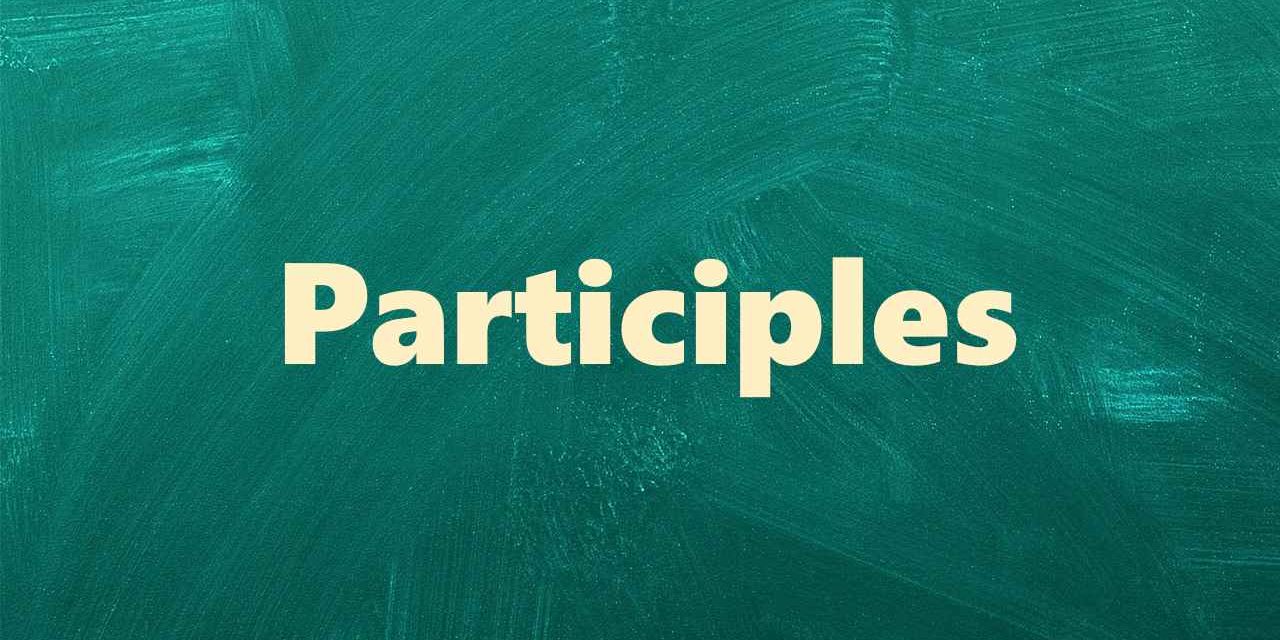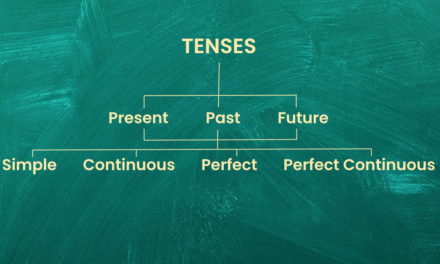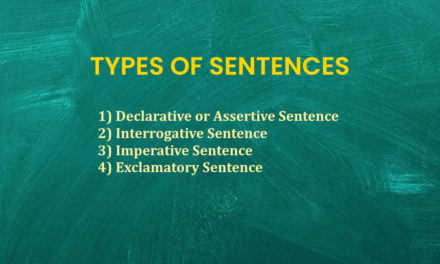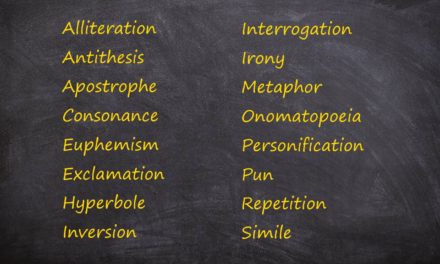What is a Participle?
When a verb functions as an adjective or adverb in a sentence, it is known as a participle.
Participles can be present or past participle.
Present Participles: These are created by adding the letters ‘ing’ to the verb. Eg: laughing, talking, wearing etc.
Past Participles: These are created by mainly adding the letters ‘en’ or ‘ed’ depending upon the verb. Eg: broken, beaten, haunted, hated.
Participles and Gerunds
Present Participles are often confused with Gerunds as both end with the letters ‘ing’. However, there is an important difference between the two.
Present participles is a form of a verb that acts like an adjective whereas Gerunds are a form of a verb that act as a noun.
Visit: Gerund meaning and examples to learn more on Gerunds.
Participles Examples
1) We saw a haunted house on the way to our village.
2) The broken glass was all over the floor.
3) He was the most hated man in the group.
4) I want to see a flying car.
5) The laughing child played all day.
6) His leg was swollen by the time he returned home.
7) My mother is a working woman.
8) He was talking throughout the movie.
Important Notes
1) Present participles always end with the letters ‘ing’. Most past participles end with the letters ‘en’ or ‘ed’ but there may be forms of past participles that end in other letters as well.
2) Most forms of verbs ending with ‘ing’ are present participles. However, some words ending in ‘ing’ may be Gerunds. Basically when the word functions as a noun, then it is a Gerund. Otherwise when it functions as a continuous form of verb or acts as an adjective, it is a present participle.






best notes for 10 lessons and poem
We are very thankful to you